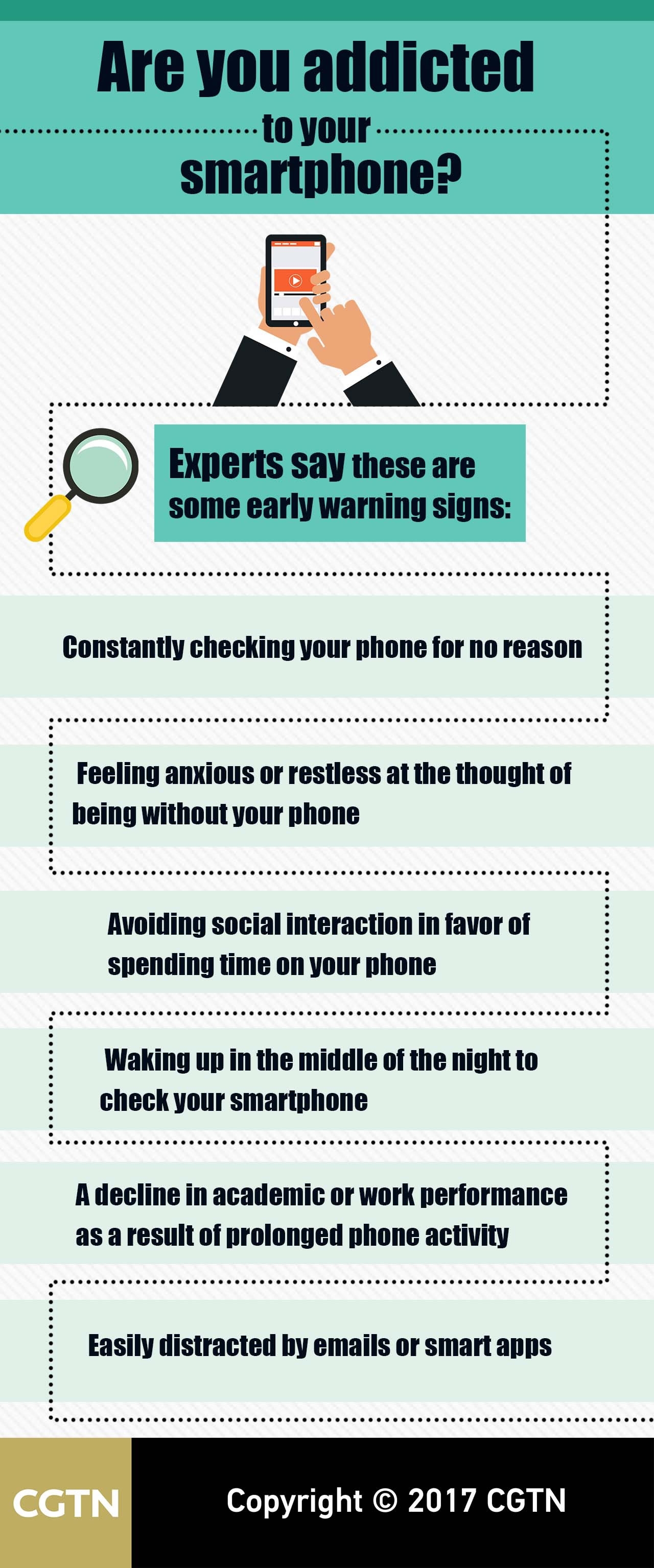
Tech & Sci
17:04, 17-Oct-2017
Can you live without your phone?
Ty Lawson

Justin Rosenstein, the engineer who created the Facebook “Like” button in 2007, is now fearful of the harmful psychological effects social media is having on people around the world.
The 34-year-old is so concerned, he has deactivated his Reddit and Snapchat accounts and imposed strict time-limits on his use of Facebook, even deleting the apps from his mobile phone for fear of becoming addicted.

Justin Rosenstein, tech entrepreneur/Twitter @rosenstein
Justin Rosenstein, tech entrepreneur/Twitter @rosenstein
Addiction is defined as a chronic, relapsing brain disorder characterized by the compulsive psychological need of or use for a substance or activity, despite potentially harmful consequences.
For Rosenstein, the rampant use of smartphones and social media are doing just that.

/Twitter @rosenstein
/Twitter @rosenstein
“These are our lives...our precious, finite, mortal lives,” he said, “If we’re not vigilant, TVs, computers and mobile devices will guide us to spend our time and attention in ways that don’t align with our deepest desires.”
Rosenstein said the Facebook “Like”, as with most other technologies, was developed with the best of intentions.
“I don't regret working on the 'Like' button,” he told CGTN, “Although I think it has had both good and unintended consequences.“
Addictive technology
According to a 2016 study by the University of Pittsburgh School of Medicine, the more time young people spend on social media, the more likely they are to be depressed.
What really caused concern for Rosenstein was research that showed the psychological effects on people who swipe or tap their smartphone more than 2,000 times a day.
“This increasing technological distractedness is a bug in our collective programming from which we must immediately collectively control – break,” he said, “Wake up from the infinite dopamine loop.”

CGTN
CGTN
There is growing concern that as well as being addictive, technology is contributing toward so-called “continuous partial attention”, severely limiting people’s ability to focus, and possibly lowering IQ.
Researchers at the University of Chicago found that the mere presence of smartphones damages cognitive capacity, even when the device is turned off.
“It’s critical we address these problems now, as we may be the last generation that can remember life before smartphones,” Rosenstein said.
Smartphone and social media users across the globe that CGTN spoke with admit there is a problem, but are not ready to put down their devices.
“My smartphone never leaves my side,” Erin Wigger said. “It’s my calendar, clock, connection to my friends and family.”
Wigger, who lives in Seattle, Washington, said, “I work in social media so I need to keep up on platforms because of my job. I check almost every major platform several times a day.”
While sentiments on social media and smartphone use vary from person to person, it is a global phenomenon that is expected to continue, especially in Asia.
Luxury handbag maker, Demi Lo, who splits her time between Hong Kong and Vancouver in Canada, was quick to admit she has a problem.
“I feel I am addicted to my phone,” she said. “I am an active observer and check some form of social media once every two hours probably.”

CGTN Digital
CGTN Digital
Asia’s Addiction
According to a recent study of students in South Korea, 72 percent of children were using smartphones by the age of 11 or 12.
It was determined that these kids spent on average 5.4 hours a day on their smartphones. As a result, 25 percent of them were considered addicted.
But smartphones and social media are not just booming business among children.
Hopping around from country to country in Asia and smartphones and social media platforms are all the buzz with massive users.
In total there are an estimated 2.5 billion smartphone users in Asia. A large number of those users can be found in China, where smartphone reach is expected to hit 663.37 million users this year.
“Now that we have 24/7 access to the Internet at the tip of our fingertips,” said Beijing-based filmmaker Jeff Wong. "Where most of the developed world swipes at our 5" inch supercomputers with 32GB of storage memory several thousand times a day, it's hard to remember what life before actually felt like.”

SITEMAP
Copyright © 2018 CGTN. Beijing ICP prepared NO.16065310-3
Copyright © 2018 CGTN. Beijing ICP prepared NO.16065310-3